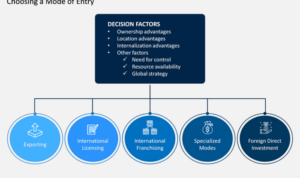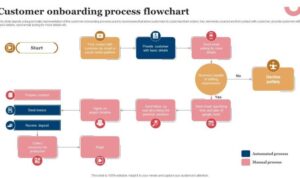Developing a Marketing Budget sets the stage for business success, guiding decisions and investments to maximize growth and impact. Get ready to dive into the world of strategic budgeting and marketing prowess
In this comprehensive guide, we’ll explore the crucial aspects of crafting a marketing budget that not only aligns with your business goals but also propels your brand to new heights of success.
Importance of Developing a Marketing Budget

Having a marketing budget is crucial for businesses as it serves as a roadmap for allocating resources effectively to reach target audiences and achieve marketing objectives. A well-thought-out marketing budget can align with overall business goals by ensuring that marketing efforts are in sync with the company’s mission, vision, and strategic direction. This alignment helps maximize the impact of marketing activities and ensures a consistent brand message across all channels.
Impact on Decision-Making Processes
A marketing budget plays a significant role in decision-making processes within a company by providing a clear framework for evaluating marketing strategies and tactics. It helps in prioritizing initiatives based on their potential return on investment and allows for informed decisions on resource allocation. Additionally, having a defined budget enables businesses to track and measure the effectiveness of their marketing campaigns, identify areas for improvement, and make adjustments in real-time to optimize performance.
Factors to Consider When Developing a Marketing Budget

When developing a marketing budget, there are several key factors that need to be taken into consideration to ensure the effectiveness of the allocated funds. Market research plays a crucial role in determining where and how the budget should be allocated, while past performance data can provide valuable insights for forecasting and setting budget benchmarks.
Market Research
Market research is essential when developing a marketing budget as it helps in understanding the target audience, competitors, and industry trends. By conducting thorough market research, businesses can identify the most effective channels to reach their target market and allocate budget accordingly. This ensures that the marketing efforts are focused and yield the desired results.
Past Performance Data
Analyzing past performance data is another important factor to consider when developing a marketing budget. By looking at previous marketing campaigns and their outcomes, businesses can identify what strategies worked well and which ones did not. This information can be used to forecast future performance and set realistic budget benchmarks. Additionally, past performance data can help in identifying areas that need improvement and allocate budget accordingly to address those areas effectively.
Strategies for Allocating a Marketing Budget
When it comes to allocating a marketing budget, businesses have several strategies to consider. These strategies can greatly impact the effectiveness of their marketing efforts and ultimately, the success of their campaigns.
Allocating Funds Across Various Marketing Channels
- Determine which marketing channels are most effective for reaching your target audience.
- Allocate funds based on the performance and potential of each channel.
- Consider a mix of online and offline channels to maximize reach and engagement.
ROI vs Fixed Percentage Allocations, Developing a Marketing Budget
- Allocating budget based on ROI involves investing more in channels that have shown high returns in the past.
- Fixed percentage allocations distribute funds evenly across all channels, regardless of their individual performance.
- Choosing between ROI and fixed percentage allocations depends on the goals and priorities of the marketing campaign.
Zero-Based Budgeting for Marketing
- Zero-based budgeting requires justifying every expense from scratch, without considering past budgets.
- This approach forces businesses to evaluate the necessity and effectiveness of each marketing expense.
- Zero-based budgeting can lead to more efficient allocation of funds and better overall performance of marketing campaigns.
Monitoring and Adjusting a Marketing Budget
When it comes to managing a marketing budget, tracking expenses and performance is key to ensuring the success of your campaigns. By monitoring and adjusting your budget regularly, you can make informed decisions that maximize your return on investment.
Regular monitoring allows you to identify areas where you may be overspending or underspending. This insight helps you reallocate resources to channels or tactics that are driving the best results, ultimately optimizing your budget for maximum impact.
Importance of Tracking Expenses and Performance
- Track expenses to ensure you are staying within budget and not overspending.
- Monitor performance metrics to gauge the effectiveness of your marketing efforts.
- Identify areas of high and low performance to reallocate budget accordingly.
Best Practices for Reallocating Budget
- Use performance data to guide decisions on where to shift funds for better results.
- Experiment with different allocations to find the optimal mix for your campaigns.
- Regularly review and adjust your budget based on the latest data and insights.






